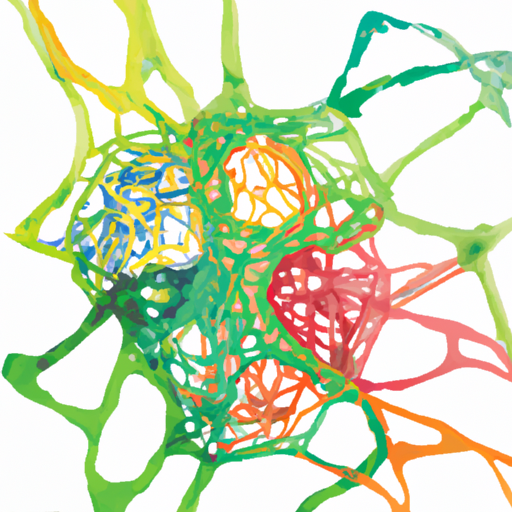Autoimmune diseases have become increasingly prevalent in today’s society, affecting millions of individuals worldwide. These complex conditions occur when the immune system mistakenly attacks healthy cells and tissues, leading to a wide range of symptoms and health complications. In this comprehensive article, we will explore the causes, symptoms, and diagnosis of autoimmune diseases, shedding light on the intricate mechanisms behind these conditions. Additionally, we will delve into the various treatment options available, providing a comprehensive guide for managing autoimmune diseases effectively. Lastly, we will discuss the challenges faced by individuals living with autoimmune diseases and explore coping strategies, support systems, and lifestyle modifications that can improve their quality of life. Whether you are seeking to understand autoimmune diseases, searching for effective treatment options, or looking for ways to better support loved ones living with these conditions, this article will provide you with valuable insights and practical advice.
1. "Understanding Autoimmune Diseases: Causes, Symptoms, and Diagnosis"
Autoimmune diseases are a complex group of disorders that occur when the immune system mistakenly attacks healthy cells in the body. This occurs because the immune system fails to differentiate between foreign substances and the body’s own tissues. As a result, it produces an immune response, which can lead to inflammation and damage in various organs and tissues.
The exact causes of autoimmune diseases are still not fully understood. However, several factors have been identified that may contribute to their development. These include genetic predisposition, environmental triggers, and hormonal imbalances. Studies have shown that certain genes are associated with an increased risk of developing autoimmune diseases. Additionally, exposure to certain environmental factors such as infections, toxins, and certain medications may also play a role in triggering these diseases. Hormonal imbalances, particularly in women, have been linked to the development of some autoimmune disorders.
Symptoms of autoimmune diseases vary widely depending on the specific disease and the organs affected. Common symptoms include fatigue, joint pain, muscle aches, fever, and inflammation. Other symptoms may include skin rashes, digestive problems, hair loss, and neurological issues. The severity and progression of symptoms can also vary from person to person.
Diagnosing autoimmune diseases can be challenging as symptoms often overlap with other conditions. A thorough medical history, physical examination, and laboratory tests are typically used to aid in the diagnosis. Blood tests, such as antibody tests and inflammation markers, can help determine the presence of autoimmune activity. In some cases, a biopsy may be required to confirm the diagnosis.
Once diagnosed, the treatment of autoimmune diseases aims to alleviate symptoms, manage flare-ups, and slow down the progression of the disease. The treatment approach varies depending on the specific autoimmune disorder and the severity of symptoms. Medications such as corticosteroids, immunosuppressants, and nonsteroidal anti-inflammatory drugs (NSAIDs) are commonly prescribed to reduce inflammation and suppress the immune response. Additionally, lifestyle modifications, including a healthy diet, regular exercise, stress management, and adequate rest, can also help manage symptoms and improve overall well-being.
It is important to note that while there is currently no cure for autoimmune diseases, ongoing research is being conducted to better understand these disorders and develop more effective treatment options. Early detection and prompt treatment are crucial in managing autoimmune diseases and preventing further complications.
In conclusion, autoimmune diseases are a group of complex disorders that involve the immune system mistakenly attacking healthy cells in the body. The causes of these diseases are multifactorial, involving genetic predisposition, environmental triggers, and hormonal imbalances. Symptoms vary widely and can affect different organs and tissues. Diagnosing autoimmune diseases can be challenging,
2. "Exploring Treatment Options for Autoimmune Diseases: A Comprehensive Guide"
Autoimmune diseases are a group of disorders where the immune system mistakenly attacks healthy cells and tissues in the body. With over 80 different types of autoimmune diseases, such as rheumatoid arthritis, lupus, multiple sclerosis, and Crohn’s disease, affecting millions of people worldwide, finding effective treatment options is crucial.
When it comes to treating autoimmune diseases, there is no one-size-fits-all approach. The goal of treatment is to manage symptoms, control inflammation, and prevent further damage to the affected organs or tissues. It often requires a multi-disciplinary approach involving healthcare professionals from various fields, including rheumatologists, immunologists, endocrinologists, and gastroenterologists, among others.
1. Medications: One of the primary treatment options for autoimmune diseases involves the use of medications. The choice of medication depends on the specific autoimmune disease and its severity. Nonsteroidal anti-inflammatory drugs (NSAIDs) are commonly used to relieve pain and reduce inflammation. Corticosteroids, such as prednisone, can also be prescribed to suppress the immune system and control inflammation. Disease-modifying antirheumatic drugs (DMARDs) are commonly prescribed for rheumatoid arthritis and other autoimmune diseases to slow down disease progression. Biologic drugs, such as tumor necrosis factor (TNF) inhibitors and interleukin inhibitors, are newer classes of medications that target specific components of the immune system to reduce inflammation.
2. Immunomodulatory therapies: These treatments aim to modulate or regulate the immune system to restore its normal function. Intravenous immunoglobulin (IVIG) therapy involves administering antibodies collected from healthy donors to help regulate the immune response. Plasmapheresis is a procedure where plasma is separated from the blood and replaced with a substitute solution. This treatment is used to remove harmful antibodies or immune complexes from the bloodstream. Another immunomodulatory therapy is the use of immune suppressants, such as methotrexate or azathioprine, which help dampen the immune response.
3. Lifestyle modifications: Making certain lifestyle changes can also play a significant role in managing autoimmune diseases. Regular exercise, a balanced diet, and sufficient rest can help improve overall health and reduce inflammation. Stress management techniques, such as meditation or yoga, can also be beneficial in managing symptoms. Additionally, quitting smoking and limiting alcohol consumption can help prevent complications and improve treatment outcomes.
4. Alternative and complementary therapies: Some individuals with autoimmune diseases explore alternative or complementary therapies to complement conventional treatment. These may include acupuncture, herbal supplements, or dietary modifications. While these therapies may provide symptomatic relief for some individuals, it is essential to
3. "Living with Autoimmune Diseases: Coping Strategies, Support, and Lifestyle Modifications"
Living with autoimmune diseases can be challenging and overwhelming at times. However, with the right coping strategies, support, and lifestyle modifications, individuals can effectively manage their condition and improve their overall quality of life.
One of the most important aspects of living with an autoimmune disease is to educate oneself about the condition. Understanding the specific autoimmune disease, its symptoms, triggers, and treatment options can help individuals make informed decisions about their health. This knowledge empowers them to actively participate in their treatment plan and communicate effectively with their healthcare team.
Support is crucial when dealing with autoimmune diseases. Connecting with others who share similar experiences can provide a sense of community and understanding. Support groups, both in-person and online, can offer a safe space to share concerns, exchange information, and provide emotional support. Additionally, friends and family members can play a vital role in providing practical assistance and emotional encouragement.
Coping with chronic illness often requires making significant lifestyle modifications. This may include adopting a well-balanced diet that supports the immune system, regular exercise, and stress management techniques like meditation or yoga. It is important to consult a healthcare professional or a registered dietitian before making any major changes to ensure that the modifications are appropriate for the individual’s specific condition.
Managing stress is essential for individuals with autoimmune diseases as stress can exacerbate symptoms. Engaging in relaxation techniques, such as deep breathing exercises, taking up hobbies or activities that bring joy, and prioritizing self-care can help reduce stress levels. It is also important to establish boundaries and learn to say no when necessary to avoid overwhelming oneself.
Finding the right balance between rest and activity is crucial. Autoimmune diseases can cause fatigue and flare-ups, so it is important to listen to one’s body and rest when needed. Planning and pacing activities throughout the day can help conserve energy and prevent exhaustion. It may also be beneficial to explore adaptive equipment or assistive devices that can make daily tasks easier and reduce strain on the body.
Regular communication with healthcare professionals is vital for managing autoimmune diseases effectively. It is important to attend regular check-ups, ask questions, and discuss any concerns or changes in symptoms. Open and honest communication ensures that the treatment plan is adjusted as needed and that any new developments are addressed promptly.
Living with an autoimmune disease can be challenging, but with the right coping strategies, support, and lifestyle modifications, individuals can lead fulfilling lives. By staying informed, seeking support, making necessary lifestyle changes, and effectively managing stress, individuals can take control of their condition and promote their overall well-being. Remember, each person’s journey is unique, and finding what works best for them is key to living well with an autoimmune disease.

